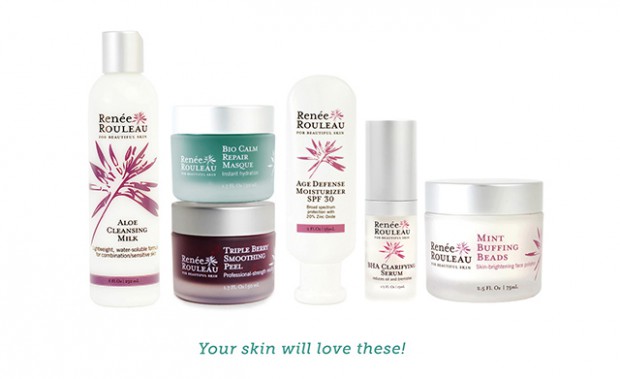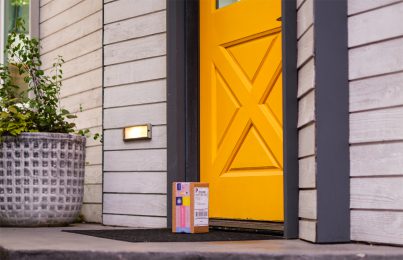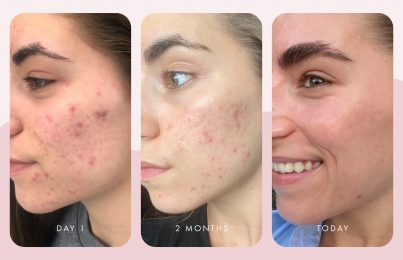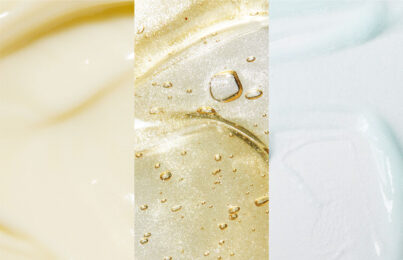I’m often asked, “What is the difference between over the counter products sold at drugstores or department stores compared to professional products like yours?” “Do professional products work better?”
The simplest answer is yes. Here are the reasons why professional products are more effective and will deliver better results than drugstore or department store products.
Note: I can’t speak for every professional line but I can certainly share how my professional line of skin care products compares.
Professional Products:
- Made in small batches to ensure absolute freshness and are made to deliver immediate results.
- With a focus on results (rather than mass selling), a higher quantity and percentage of active ingredients are added to ensure the product does what it says it’s going to do.*
- Formulated and sold by an esthetician who has 25 years of hands-on experience with a true understanding of the skin and its function. (This is the case in my line.)
- Extensive product selection to cater to all different types of skin conditions. (My line has nine unique skin types. What’s your skin type? Choose yours here.)
- No added synthetic fragrances, colors or dyes. This lessens your chance of sensitivity and irritation to these unnecessary chemicals.
- High quality ingredients with proven results. (We avoid mineral oil and petroleum, poor quality oils commonly found in drugstore products.)
- Sunscreen numbers with safe and proven SPF ratings. (SPF 30-SPF 50.)
Over The Counter products:
- Made in large batches for the masses so more preservatives are added since the shelf life will need to be longer.
- May have less or lower percentage of active ingredients since they will be sold to “for all skin types” and therefore need to be more basic, simpler formulas.*
- Formulated by chemists and presented and sold to the public by corporate marketing specialists. Lots of hype and clever marketing jargon to get you to buy it.
- Most products are made for “one size fits all.” (If you’re looking for results, it’s imperative that you use products formulated for the unique needs of your skin.)
- Added synthetic dyes, colors and fragrances to heighten the sensory experience and esthetic look for the sole purpose of encouraging sales.
- Low quality, inexpensive oils with potential pore clogging properties. The drug store is loaded with products containing mineral oil and petroleum which are forbidden ingredients by most skin care professionals.
- High SPF numbers (SPF 50 and above) originated by mass marketers to mislead people into believing that high SPF numbers were more effective without scientific proof for the sake of selling more products. (The FDA has put in a ruling to ban all sunscreens higher than an SPF 50 since there is no proof showing it protects the skin more.)
*Important information to know: Two products can have the exact same list of ingredients, and one will be highly effective while the other could be completely useless. The difference is the concentration of those ingredients. One product may use a very small amount while the other uses a clinically active level. Unfortunately for you, the consumer, there is no way to understand the difference. This is because all ingredients are supposed to be listed in order of the concentration used, but for ingredients with a concentration less than 1% they can be listed in any order. There’s a big difference between an ingredients used at .01% versus 1%, but you would never know it from the label on the bottle, tube or jar.
Since skin care formulas are proprietary, cheap products can easily disguise themselves as looking like quality products–especially if fancy packaging is used. You must choose a skin care company that you trust. The credentials of the company as well as positive results experienced by real customers make all of the difference in skin care.
If you truly want to improve the appearance in your skin, I think there is no better place to purchase your skin care products than through a reputable skin care professional. I would love to be your trusted skin care professional.
Read: How to Avoid a Negative Reaction to New Skin Care Products
Read: Dermatologist vs. Esthetician: Who Should You See for Your Skin
Read: How Do Renée Rouleau Products Compare to Other Skin Care Lines?
Read: Renée Rouleau Confesses Her Personal Skin Care Secrets
Which products are right for your skin? See our nine skin types and get products recommended.
Need expert advice from a licensed esthetician? Schedule My Skin Prescription to get personalized advice in person, over the phone or via Skype or Facetime.
For more expert skin advice, check out Skin Source–the A-Z guide on all things skin. Also sign up for our skin tip e-newsletter, follow Renée Rouleau on Twitter and join the discussion on our Facebook page. You’ll be your own skin care expert in no time.
Celebrity Esthetician & Skincare Expert
As an esthetician trained in cosmetic chemistry, Renée Rouleau has spent 30 years researching skin, educating her audience, and building an award-winning line of products. Her hands-on experience as an esthetician and trusted skin care expert has created a real-world solution — products that are formulated for nine different types of skin so your face will get exactly what it needs to look and feel its best. Trusted by celebrities, editors, bloggers, and skincare obsessives around the globe, her vast real-world knowledge and constant research are why Marie Claire calls her “the most passionate skin practitioner we know.”



